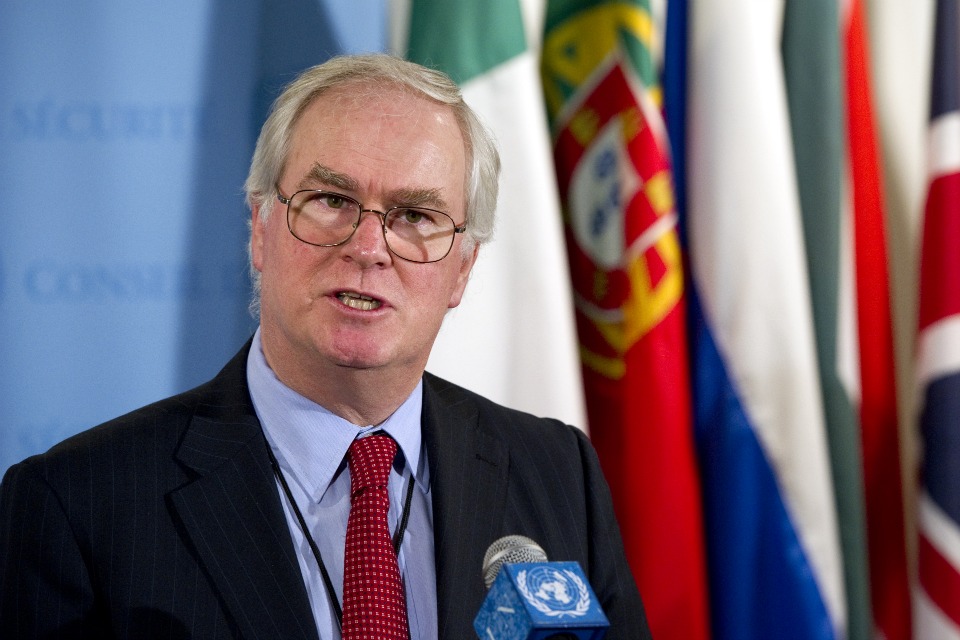UN Integrated Strategy important for Sahel
Statement by Sir Mark Lyall Grant, UK Permanent Representative to the United Nations, to UN Security Council Session on the Sahel

Thank you, Mr President, for scheduling this important discussion. I particularly would like to thank the Secretary-General for his continued engagement and leadership on the Sahel region demonstrated most recently by his extensive visit to the region in November together with the President of the World Bank and other leaders of key institutions and organisations. I thank him, President Kim, Special Envoy Prodi, and the representatives of the European Union and African Union for their important contributions to the debate this morning. The United Kingdom welcomes adoption of the Presidential Statement which establishes a strong and united Security Council position on peace and security in the Sahel.
Mr President,
The Sahel region is at an important moment in its progress towards greater security, prosperity, democratic governance and rule of law. In recent weeks Mali has successfully elected a new president, completed the first round of legislative elections, and initiated investigations by the Malian judiciary into alleged human rights violations following the 2012 coup. Mauritania also held parliamentary elections, a positive step that we hope will help the country return to a normal electoral cycle.
But while we have recently seen positive steps, many challenges remain. Organised crime and drug trafficking, proliferation of weapons, environmental issues, and humanitarian crises continue to impede progress in the region. Despite the successes of French-led international intervention in Mali, the threat from Islamist extremists remains in many parts of the country. And corruption among elites and institutions prevent state structures from acting effectively to address challenges. That is why the United Nations’ Integrated Strategy is so important. It should be implemented as soon as possible. The Integrated Strategy sets out an organising framework to address these challenges. It is a useful framework not just for the United Nations but also for a wider set of international partners.
But for implementation of the Integrated Strategy to be effective, we must prioritise work to areas where tangible and lasting impact can be made. I would like to highlight three areas, in particular, that the United Kingdom perceives as critical:
Firstly, security. We must disrupt terrorist activity and tackle organised crime by building regional capacity and regional co-operation. The United Kingdom has proposed a draft resolution tackling one aspect of this menace: ransom payments for kidnapping, which fund terrorist activity in the Sahel region. We must develop a clear analysis of, and approach to, all such cross-border threats.
Secondly, we must focus on state-building. We should offer long-term support for political settlements, including local-level reconciliation initiatives and the reintegration of armed groups. To ensure provision of basic public services such as education and access to justice, particularly outside urban areas, we should embed transparent and accountable systems for service delivery, with closer tracking of progress made.
And lastly, we must focus on resilience. Regional bodies should lead in economic co-operation and food security initiatives, ensuring their implementation at country and local level, with the help of NGOs. And alongside this local and regional ownership, international partners should support governments to develop and deliver well-targeted safety-net schemes as a means of guarding against recurrent environmental and food shocks.
Mr President,
In October this year the UK’s Minister for Africa, Mark Simmonds, visited Timbuktu – the first British Minister to do so for many years. During his visit he noted the rich cultural heritage of the Sahel and its great potential to succeed. He saw for himself how much the region needs the international community to help it to unlock this potential.
The UN Integrated Strategy for the Sahel can do just that. It is time now to move it from the theoretical to the practical and unlock that potential. This requires commitment and resources, and we hope that the UN’s assets in the region, particularly the regional office in Dakar, can now be mobilised to begin the work that needs to be done in implementation.
Thank you, Mr President.